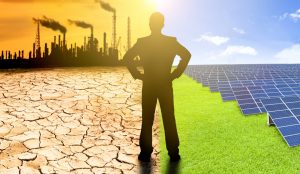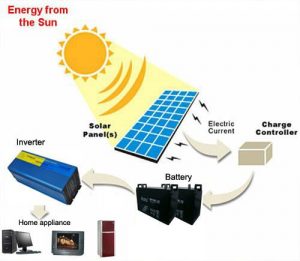
Solar energy is one of the most popular forms of renewable energy, but that doesn’t mean it’s without its drawbacks. In this blog post, we’ll discuss some of the drawback of solar energy so that you can make an informed decision about whether or not it’s the right choice for you.
Some key drawbacks.
- Solar panels can be expensive to install.
The initial cost of solar panel installation can be quite high, which may deter some people from making the switch to solar. However, there are a number of rebates and incentives available that can help offset the cost of installation. Additionally, over time the money saved on your electricity bill will usually outweigh the initial investment.
- Solar panels require a lot of space.
If you’re tight on space, solar panels may not be the best option for you since they require a lot of square footage. This may not be an issue if you have plenty of land on your property, but it’s something to consider if you have a smaller lot or live in an urban area.

- They’re not very efficient.
Solar panels are only about 15-20% efficient, which means that a lot of sunlight is wasted and converted into heat instead of being used to generate energy.
- They’re reliant on weather conditions.
Cloudy days and seasons with less sunlight will result in lower output from your solar panels. This means that if you live in an area with less than ideal weather conditions, solar may not be the best option for you.
- They have a relatively short lifespan.
Solar panels usually last 20-30 years before they need to be replaced, which means that they have a much shorter lifespan than other energy sources like coal or natural gas.
- They can be unsightly.
Some people find solar panels to be unsightly and an eyesore, especially if they’re installed on residential properties. If aesthetics are important to you, solar panels might not be the best option.
- They require maintenance.
Solar panels require occasional cleaning and maintenance in order to function at their best. This can be an inconvenience for some people and add additional costs over time.
Conclusion
Solar energy is a popular form of renewable energy, but it’s important to weigh the pros and cons before making the switch. Solar panel installation can be expensive and requires a lot of space, but there are a number of rebates and incentives available to offset those costs. Additionally, while solar panels are only 15-20% efficient, they have a relatively long lifespan and require little maintenance. If you live in an area with sunny weather conditions and have enough space for installation, solar energy might be the right choice for you!
Despite these disadvantages, solar power offers many benefits that make it worth considering as part of your renewable energy mix. It’s important to do your research and find out if solar is right for you.







